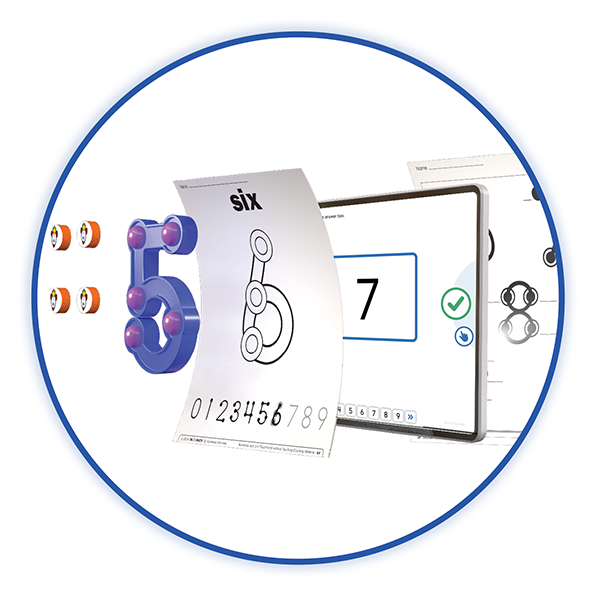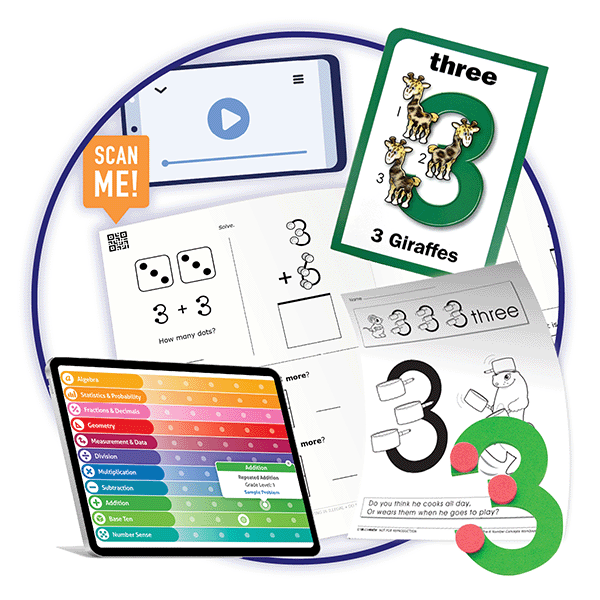Empowering Students with Dyscalculia: Alabama SB171 and TouchMath
In the landscape of public education, the pursuit of excellence in mathematics education is a paramount goal. Alabama Senate Bill 171 (SB171) is a significant step towards achieving this objective. SB171, known as the Alabama Numeracy Act, aims to bolster mathematics proficiency among K-5 grade students in public schools. By prohibiting the utilization of the Common Core State Standards, SB171 encourages the exploration of innovative methodologies in math education. One such innovative program is TouchMath, which holds the potential to make a profound impact on students’ mathematical journey.

Alabama, with its growing emphasis on STEM (Science, Technology, Engineering, and Mathematics) industries, recognizes the critical role mathematics plays in preparing students for future career opportunities. SB171 underscores the state’s commitment to equipping students with the mathematical skills necessary to thrive in these industries and contribute meaningfully to the state’s economic growth.
TouchMath offers a research-backed approach to mathematics education that addresses the specific needs of Alabama’s diverse student population. By leveraging multisensory techniques and evidence-based strategies, TouchMath equips students with the foundational skills they need to excel in mathematics, regardless of their learning abilities.
As Alabama continues to prioritize mathematics education through initiatives like SB171, TouchMath stands ready to support educators and students alike on their journey towards mathematical proficiency and success. Through collaborative efforts and a shared commitment to excellence, we can ensure that every student in Alabama can achieve their full potential in mathematics and beyond.
Understanding Dyscalculia and Its Challenges

Dyscalculia, a learning disability marked by challenges in numerical understanding and manipulation, poses significant obstacles for students as they navigate the realm of mathematics. Beyond hindering academic advancement, dyscalculia can undermine students’ confidence and self-assurance. However, research underscores the potential for success among students with dyscalculia through early detection and tailored interventions.
Dyscalculia is a specific learning disorder that affects a person’s ability to understand and manipulate numbers. It may manifest as difficulties with counting, working memory for numbers, recognizing patterns, understanding time and direction, estimating distances and volumes, recalling math facts, and performing mathematical procedures. Dyscalculia can persist into adulthood, impacting various aspects of daily life, including academic and professional pursuits.
Explicit Systematic Design for Supporting Dyscalculia
TouchMath emerges as a beacon of hope for students grappling with dyscalculia. Rooted in the Concrete-Representational-Abstract (CRA) framework, TouchMath offers a multisensory approach that enhances comprehension and retention of mathematical concepts. Through tactile experiences and visual aids, TouchMath facilitates meaningful connections between numerals and quantities, laying a robust foundation for mathematical proficiency.
Curriculum for Students with Dyscalculia
TouchMath boasts a meticulously crafted curriculum designed to address a wide spectrum of mathematical concepts and skills. From fundamental arithmetic operations to advanced problem-solving strategies, TouchMath covers a breadth of content. Its scaffolded learning approach empowers students to progress at their own pace, fostering confidence and competence in math. Furthermore, the integration of visual cues enhances understanding and application, ensuring equitable access to mathematical learning.
Empowering Educators to Effectively Support Students with Dyscalculia
Alabama’s SB171 highlights the importance of early intervention for students showing mathematics deficiencies or signs of dyscalculia. TouchMath aligns seamlessly with these goals, providing intensive mathematics interventions endorsed by educational experts. Through evidence-based methods and resources, TouchMath equips educators with the necessary tools to address specific mathematics deficiencies and offer targeted support to students.

SB171 and TouchMath share a common objective of enhancing mathematics education, especially for students struggling with numeracy. While SB171 focuses on improving mathematics proficiency among K-5 students in Alabama’s public schools, TouchMath offers a proven solution to aid in this effort.
The bill stresses early detection and intervention for students with math deficiencies, aligning with TouchMath’s evidence-based strategies for addressing learning challenges like dyscalculia. For example, SB171 emphasizes computational fluency and conceptual understanding, both fundamental components of the TouchMath curriculum. Furthermore, the bill underscores the importance of comprehensive mathematics curricula and intervention programs, a criterion that TouchMath fulfills with its comprehensive approach based on the Concrete-Representational-Abstract (CRA) framework.
By leveraging TouchMath’s innovative methodologies and resources, educators can effectively implement the provisions outlined in SB171 and ensure that every student receives the necessary support to excel in mathematics.
Looking Toward the Future
As Alabama’s SB171 heralds a new era in mathematics education, TouchMath stands poised to support educators and students on their mathematical journey. By embracing innovative methodologies and evidence-based strategies, we can ensure that every student — irrespective of learning differences — has the opportunity to thrive in mathematics and beyond. Be sure to check out the recording of our recent webinar to learn more about how TouchMath can empower your students.
About TouchMath

TouchMath is an evidence-based, multisensory approach to mathematics that can help students when other math learning solutions fail. If a student has dyscalculia, they can still succeed in mathematics, and we have the resources to support you so you can better support them.
- Our Dyscalculia 101 page is your one-stop-shop for all things dyscalculia.
- Checkout our dyscalculia workshop sessions.
- Access our free dyscalculia screening tool.
- Download the full dyscalculia white paper by Dr. Sandra Elliott and Sam Wertheim, Doctoral Candidate.
We’re changing the way students experience math. Ready to talk interventions?
